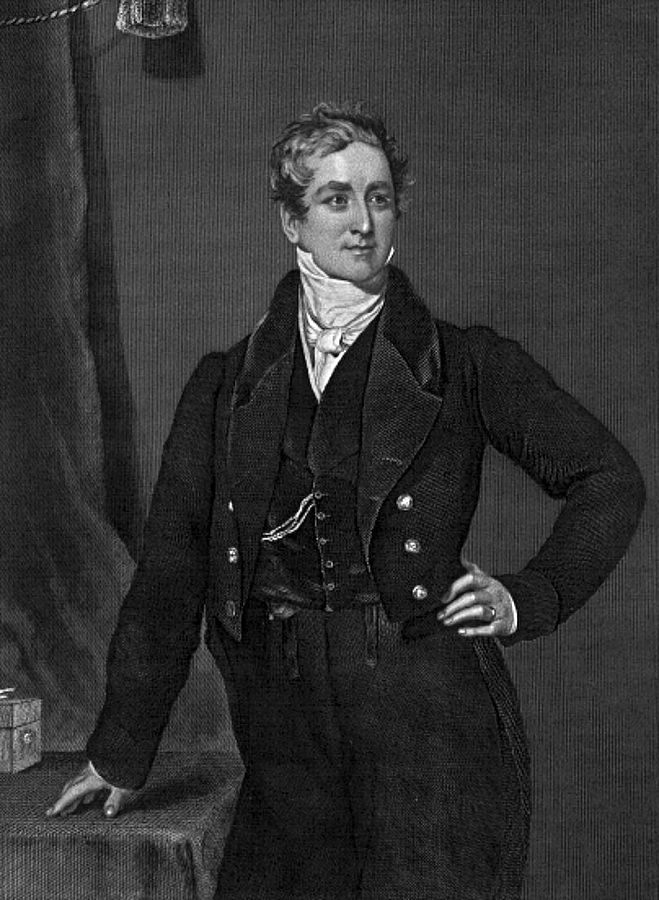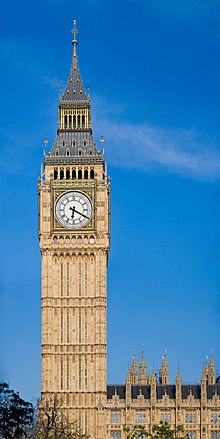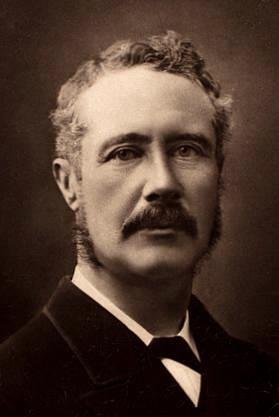When I agreed to review Rees-Mogg’s book, The Victorians for the Historical Novel Society I hadn’t seen the tsunami of negative reviews that it has received. When it arrived I approached nervously, both because it’s a bit unnerving to settle down with a 439 page book that everybody has said is awful, and because if I didn’t like it either, what on earth was I going to say in the review?
The book is indeed terrible. But I think that many of the reviewers have done it something of an injustice. Rees-Mogg has set out to discuss the lives of twelve Victorians – “Twelve Titans Who Forged Britain” – and this has led most people to see this book as essentially a history of the Victorian age seen through some of its leading figures. I think this fundamentally misunderstand is what Rees-Mogg is trying to achieve.
 Jacob Rees-Mogg
Jacob Rees-Mogg
The book is not in any normal sense a historical work. It does have some history, but this is used merely to illustrate Rees-Mogg’s view of the world and, given the significant role he plays in our current politics, understanding his view of the world is probably a worthwhile undertaking.
Rees-Mogg appears driven by two things – his Catholicism and his membership of the Conservative Party. The book does give me a much better understanding of the history of the Conservative party and the way that it developed during the 19th century. In fact, I suspect that Rees-Mogg could write a useful book about the party. He explains how Peel’s Tamworth Manifesto (1834) “marks … the beginning of the contemporary British Conservative Party”. It was a serendipitous moment to shape a political party because “The General Election of 1835 … was the first election when papers published lists of candidates with ‘party’ labels attached.” Peel went on, of course, to split the party over his repeal of the Corn Laws and Rees-Mogg’s explanation of the background to this and the way in which the party eventually recovered from the split is a useful summary for those of us who are vaguely aware of what happened without being clear as to the detail. It would be clearer still if this was arranged as a straightforward history of the party rather than having the split in a chapter about Peel and the details of the recovery in a much later chapter about Disraeli. Even so, the history of the party is well presented. For anyone who, like Rees-Mogg, cares about these things, Disraeli’s consolidation of the party’s organisation is a significant historical event.
“It was at this time Conservative Central Office evolved as the prime organisational power in the party with sub-bodies established to reinforce its power and influence in the country. One such was the National Union of Conservative and Constitutional Associations, that tentacle of Central Office in charge of organising within newly enfranchised urban communities…”
Sadly, Rees-Mogg is not writing a history of the Conservative party, but the lives of twelve great Victorians. The obsession with the party leads to some distortions so extraordinary as to be almost comic. So these are the closing words of his chapter on Peel:
“In the end, it is only possible to recognise the majestic extent of Peel’s achievement by realising what it avoided. For without the party and its philosophy he bequeathed to the nation, there is little reason to suppose we would have coped with change any better than other countries did. A negative achievement when seen in full, perhaps, but a vital one, and one for which we should still be thankful.”
 Robert Peel
Robert Peel
Peel’s political career started as Chief Secretary to Ireland. He was the chairman of the Bullion Committee that returned Britain to the gold standard. As Home Secretary he founded the Metropolitan police, and is widely regarded as the father of modern British policing. As prime minister he was responsible for, amongst other things, the Mines and Collieries Act 1842, the Income Tax Act 1842, the Factories Act 1844 and the Railway Regulation Act 1844. Whilst historians recognise his achievement in shaping the modern Conservative Party, Rees-Mogg’s emphasis on this aspect of his career appears excessive.
When he is not viewing his subjects through the lens of his political interests, Rees-Mogg concentrates on their religious views. Pugin, for example, is included as one of the “twelve Titans”. Even if you are a fan of his architecture – and as Rees-Mogg admits, “Even in his own lifetime … his people virtually lost sight of his achievement” – it is difficult to see the basis on which he is one of the twelve most important men of his time. The answer is that he was “God’s architect”, his designs intended to reflect the glory of a Catholic (or, when occasion demanded, an Anglo-Catholic) deity. Gladstone’s Whiggery is forgiven for the “deeply felt sense of religion” that influenced his outlook. He was a High Anglican who fought for disestablishment of the Anglican church in Ireland (favouring the Catholic cause) though for ten years he refused to speak to his one-time friend, Manning, who had been an Anglican cleric before converting to Catholicism eventually becoming Archbishop of Westminster.

Pugin was mainly responsible for the interior detailing of Parliament, but he did design the clock tower
It is with the chapter on General Gordon that the discussion of religious beliefs carries us to the edge of sanity. Gordon was far from the most important martial figure of his age. He fought in the military shambles that was the Crimean War and then beat the Chinese in the Second Opium War, a conflict in which the technological superiority of the European armies meant that the outcome was never in serious doubt. Still in China, he assisted the Chinese government in putting down the Taiping Rebellion before (with British government approval) entering the service of the Khedive of Egypt in 1873 where he became Governor-General of the Sudan. He stayed in the Sudan until 1880, when he returned to England. However, a rebellion in Sudan led to Gladstone’s government deciding to withdraw all British and Egyptian troops and administrators in the upper Nile Valley. Gordon objected and went to the press advocating massive intervention in the Sudan to crush the uprising. Public opinion backed him and Gladstone, feeling he was losing control of the situation, agreed that Gordon could go to Khartoum and report but the government policy was to continue to be an evacuation of British and Egyptian personnel. On his arrival at Khartoum, Gordon ignored his orders and began preparations for a siege. His position was militarily impossible. Again, public opinion took his side, insisting that a relief force be sent to break the siege. It arrived too late. By the time the British arrived the city had fallen and Gordon had been killed. About 10,000 people died in the course of the assault.
 General Gordon
General Gordon
It can be argued that Gordon’s military career, despite his popularity with the public, was unimpressive. What makes him stand out for Rees-Mogg seems to be his religious beliefs.
“In this chapter, the aim is to re-examine this British exemplar… In particular to emphasise the forgotten aspects of his story, his deep and unique religiosity…”
What Rees-Mogg sees as a “deep and unique religiosity” most 21st century readers may well view as barking mad.
“He came to believe in the pre-existence of the soul. The body was a ‘sheath’ in which the soul was placed at birth, to be awoken when union with Christ was achieved… [O]nce this vision occurred ‘the now raised and quickened soul will grope its way out of its shell’ where … it will contend with the body, often being nearly extinguished but never quite, till the body gives up the struggle in natural death’ and the much longed for homecoming is achieved.”
Bluntly put, Gordon had a death wish. Rees-Mogg reports him as saying, when threatened by King John IV of Ethiopia:
“I am always ready to die, and so far from fearing you putting me to death, you will confer a favour on me by so doing, for you will be doing for me that which I am precluded by my religious scruples from doing for myself.”
In Khartoum, Gordon finally achieved the end he had sought so enthusiastically for so long. It is just unfortunate that 10,000 others had to die alongside him.
Why does Rees-Mogg enthuse about somebody who appears not only, to put it mildly, eccentric, but dangerously eccentric? The answer appears to be that the author holds many beliefs that have more in common with those held by the Victorians than one might expect to find in a 21st century Member of Parliament. He is obviously a believer in the Great Man theory of history, but he also believes that Providence plays a direct role in guiding historical events. Writing about Sleeman (famous for first discovering and then eliminating Thugee in India) he says:
“… perhaps fate or destiny had ordained precisely that Sleeman be on the spot, for it needed such a man as he to deal with a situation that so many before him had failed to resolve.”
Rees-Mogg’s vision of Conservatism and his religious beliefs are firmly rooted in his view of the 19th-century, but this is a 19th century than never really existed. The Victorians seeks to delineate a myth:
“These heroes of old who possessed belief and patriotism, a sense of duty, a confidence in progress and knowledge of civilisation have shown us what can be done… The truth is that Victorian Britain was [… a society of] greatness, nobility, and good sense.”
Like all myths, it depends on willing acceptance by its audience. Mythology is not about fact and detail – hence, presumably, the absence of footnotes, references (there is just a bibliography of three pages of secondary sources), or even an index. Instead we have a broad brush overview of twelve of Rees-Mogg’s heroes. They are not, even by his own account, particularly representative. Discussing the Jamaica Committee, he lists “some of the most illustrious worthies of liberal Britain … Charles Darwin, John Stuart Mill and the biologist Thomas Henry Huxley.” None feature in this book, their liberalism alone being enough to disqualify them. The book ignores, or dismisses out of hand, most controversial issues. (My personal favourite was that “the First Opium War proved an unqualified British success… A Second Opium War (1856-60) would complete the mission to British satisfaction.” This casually dismisses probably the most outrageous aggression of a century that provides stiff competition in this field.)
Sadly, the fantasy idyll of Victorian England was cruelly facing reality even while the book was being printed. For Rees-Mogg, the great strength bequeathed to us by the Victorians was the stability of our political system and our constitution.
“… the unique characteristics and glorious flexibility of the British constitution. This was an entity which could, unlike its known, codified equivalent, respond swiftly and decisively to the political needs of the nation.”
As Britain and its political class become the laughing stock of the world, it is worth knowing that one of the architects of our national humiliation is a man whose beliefs are based on a badly researched, carelessly presented, largely imaginary past. Rees-Mogg’s vision of the Conservative Party – a vision that Peel and Disraeli would both recoil from – and his messianic conviction that Providence will step in when the nation needs to be saved, both make him utterly unfitted for public office. If this book has only made that clear, reading it is not time entirely wasted.
Image credits
Jacob Rees-Mogg: official photograph by Chris McAndrew
Peel: Duyckinick, Evert A. Portrait Gallery of Eminent Men and Women in Europe and America. New York: Johnson, Wilson & Company, 1873. Courtesy of the University of Texas Libraries, The University of Texas at Austin.
Big Ben: Photo by DAVID ILIFF. License: CC BY-SA 3.0
Gordon: Geruzet Frères – Belgian (active c. 1870-1889) – Harvard Art Museum/Fogg Museum, Historical Photographs and Special Visual Collections Department, Fine Arts Library
Why am I writing this?
I’m not an expert on the Victorians. Victoria was on the throne a long time and a lot happened then. But my books about John Williamson are set mainly in the 1850s and their theme is the contradictions and complexities of Empire and the Victorian age. It is fair to say that they give a rather more nuanced view of this period than Rees-Mogg (and feature some rather more interesting Victorians, including James Brooke, whose inclusion would have made Rees-Mogg’s book a lot more interesting). If you want to know more about this series of books, please have a look at my blog post on the Williamson Papers.


Very thoughtful review Tom – the sort I like. I don’t agree with all that’s said (though I do much of it) but it’s the type of civilised, discursive, non-strident presentation of arguments that I find enjoyable. It’s a bit like sitting down to an enjoyable conversation.
BTW I’d also strongly recommend “High Minds” by Simon Heffer, one of the best analyses of the changes of society in Britain from the 1840s to the 1880s. His follow-up, “The Age of Decadence”, which takes the story on to 1914, is equally good.
Thank you.
What an excellent review.
Thank you.
Loved the review. Quite balanced given the rest of the reviews out there, and from what I’ve seen of the man on Twitter! Thank heavens I don’t currently live in England!
Can we come and live in New Zealand?
Interesting and original review — first point that other reviewers misunderstood was that book was just his choice of twelve persons of the 19C. We could all have picked our own (I’m thinking of mine already). The inclusion of Charles George Gordon, considered a dangerous madman, will probably compel me to read the book in the future. As for the promo, titans,etc.,one has to blame the editors.
This is such a great review. It is not going to send me in search of a copy of the book, but it does confirm my suspicion for a while, which is that Rees-Mogg is like a man born into the wrong era; his disconnect from the world he actually lives in now is extraordinary. I enjoyed your view of this, though.
It is the usual arrogant assumption of politicians that just because they are what they are, they must necessarily also be excellent writers. Moggs’ chosen field already has some eminent experts (AN Wilson etc) and he would have been better advised to narrow his focus. I deliberately do not set my books in the 1880s for that very reason. Not that I am comparing myself with the Etonic Mr Moggs. I am a mere ‘potted plant’. Oh, and allowing your mates and adoring fanclub to post 5 Star reviews on Amazon is not *cricket* either.
Some of the 5* reviews are not what they might at first appear to be. Have a read. I chuckled.
Great review.
Thank you.